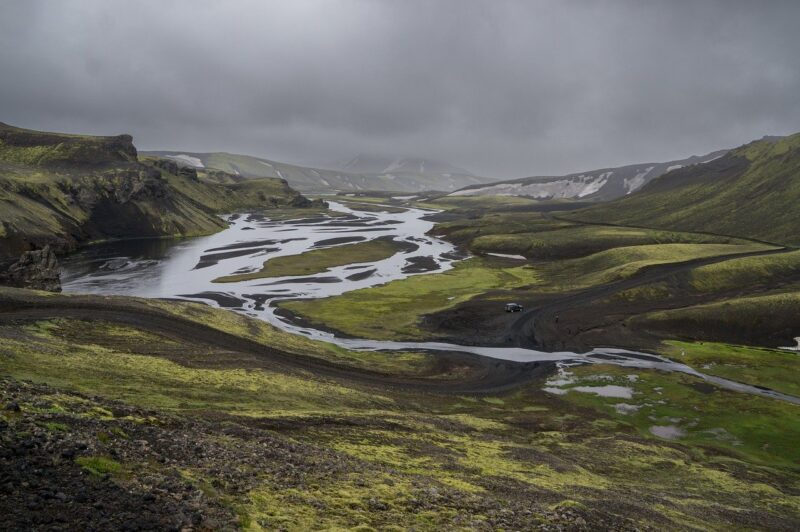The Fascinating Journey of Rivers and How They Shape Civilizations
November 15, 2024

Rivers have been the lifeblood of human civilization since time immemorial, shaping cultures, providing resources, and fostering trade. These flowing bodies of water not only nourish our ecosystems but also act as vital arteries for economic growth and social interaction. In this comprehensive article, we will explore the multifaceted role rivers play in shaping civilizations, from ancient times to modern society.
1. The Role of Rivers in Early Civilization
The genesis of human civilizations can often be traced back to the banks of rivers. Early societies sprang up in fertile river valleys, where agricultural practices could thrive. Take, for instance, the Nile in Egypt, the Tigris and Euphrates in Mesopotamia, or the Indus in India—each provided irrigation, fish, and a means of transportation for trade.
Rivers enabled societies to shift from nomadic lifestyles to permanent settlements, fostering agricultural development. The surplus of food led to population growth, which in turn created complexities in social structures, governance, and economic systems.
2. Rivers as Trade Routes
As civilizations flourished, rivers became not just sources of sustenance, but pivotal trade routes. Ancient merchants utilized rivers like the Mississippi, Yangtze, and Amazon to transport goods efficiently. The navigability of these rivers facilitated commerce, enhancing economic interdependence among different cultures.
Rivers offered a cost-effective and reliable means of transporting goods. While land travel was often fraught with obstacles—hostile terrain, robbers, and harsh weather—navigating a river often made trade faster and simpler. This interconnectivity allowed for the exchange of not only goods but also ideas, languages, and customs, fostering cultural exchange.
3. Rivers and Religion: Spiritual and Cultural Significance
Throughout history, rivers have held profound spiritual significance. Many cultures viewed rivers as sacred, attributing life-giving properties to them. The Ganges River in India is revered as a holy site where millions of pilgrims come to purify themselves and pay homage to their ancestors. Similarly, the Amazon holds cultural importance for numerous indigenous tribes who rely on it for sustenance and spiritual practices.
Rivers have inspired countless myths, rituals, and traditions. They serve as powerful symbols in art and literature, representing the concepts of life, death, and rebirth. This cultural significance further highlights how intertwined human civilization is with these waterways, illustrating that rivers are not merely physical entities but are also vessels of human emotion and belief.
4. Environmental Impact of Rivers on Civilizations
Rivers significantly influence the environment, shaping the land and ecosystems. They create fertile deltas and contribute to biodiversity, supporting diverse flora and fauna. The existence of wetlands along rivers plays a crucial role in flood control and water purification. Increased biodiversity, in turn, sustains local communities and economies.
However, the environmental impact of rivers is a double-edged sword. While they have historically blessed civilizations with resources, human activity—ranging from industrialization to agriculture—has often led to pollution, deforestation, and habitat destruction. The management of river resources has become crucial, as the health of a river directly impacts the civilizations that depend on its flow.
5. The Modern Relationship with Rivers
In contemporary societies, rivers continue to be pivotal. Today, they serve various functions—from water supply to hydroelectric power generation. The construction of dams and water management systems aims to harness these resources while minimizing flooding and promoting sustainable development.
However, the modern relationship with rivers is not without challenges. Urbanization and population increase have led to over-extraction and pollution of rivers, threatening not only local ecosystems but also the health and livelihoods of communities. Activism and conservation efforts have emerged to protect rivers, advocating for sustainable practices that balance human needs with environmental preservation.
6. Case Studies: Influential Rivers and Their Civilizations
Let us take a closer look at three influential rivers and how they shaped specific civilizations:
1. **The Nile River (Egypt)**: The predictable flooding of the Nile created fertile soil ideal for agriculture, allowing ancient Egypt to flourish. Its annual cycles provided the Egyptians with a reliable agricultural calendar, influencing their religious and cultural practices.
2. **The Indus River (India)**: The Indus Valley Civilization arose around the river, known for its advanced urban planning and sophisticated drainage system. The river enabled trade and cultural exchange with distant civilizations, influencing societal advancements.
3. **The Mississippi River (USA)**: The Mississippi has been a crucial artery for trade and transport in America. It served as a boundary for various cultural regions, influencing migration patterns, historical conflicts, and economic opportunities.
7. Future Challenges and Preservation Efforts
The future of rivers and their role in shaping civilizations faces significant challenges. Climate change poses threats through altered rainfall patterns and increased flooding or droughts, impacting water supply and agriculture. Urbanization continues to stress river ecosystems, and pollution remains a pressing issue affecting aquatic life.
Preservation efforts are critical for sustainability. Initiatives such as river clean-up programs, habitat restoration, and improved water management are essential steps toward protecting these vital resources. Advocacy for legislation that prioritizes river health and community rights to clean water is becoming increasingly critical.
Conclusion: Rivers as the Veins of Civilization
In conclusion, rivers are much more than mere bodies of water; they are the veins through which civilizations flow. They nurture societies, facilitate trade, inspire spirituality, and shape environments. Understanding the intricate connections between rivers and civilizations is vital for fostering their preservation in the face of modern challenges.
As we move forward, remembering the historical significance of rivers and advocating for their protection will ensure that future generations can inherit these life-giving waterways, continuing their journeys alongside human civilization.







